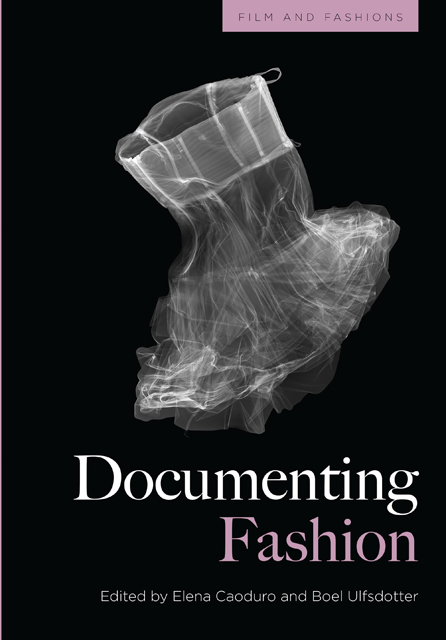11 - Documenting fashion in the era of Instagram: a critical reading of Asri Bendacha’s Follow Me and Chiara Ferragni’s Unposted
Published online by Cambridge University Press: 20 October 2023
Summary
Despite the variety of social, institutional and commercial actors that contribute to defining the meaning of fashion, scholars often postulate the existence of a fashion imaginary as a ‘stock of images, values, practices and rules that dominate the western fashion industry and that its participants take for granted in their relationship with fashion’ (Mora, Rocamora and Volonté 2016: 177). A social imaginary, according to Taylor's definition, is ‘that common understanding that makes possible common practices and a widely shared sense of legitimacy’ (Taylor 2004: 23). If such an entity exists in the domain of fashion (Mora and Pedroni 2017), digital media are a major contributor to its creation – not only via the activity of bloggers, Instagrammers and social media influencers (Rocamora 2011, 2012, 2018; Pedroni 2015, 2016) who have formed a new category of cultural intermediaries (Bourdieu 1984) able to define and legitimise cultural tastes and trends, but also due to their ability to attract the interest of the legacy media such as TV, cinema and magazines responsible for the diffusion of fashion imaginary.
Nowhere is this more visible than in recent documentaries on the rise of fashion influencers. This essay considers two documentaries produced in the late 2010s and distributed by two of the largest international video streaming platforms: Chiara Ferragni's Unposted (2019), directed by Elisa Amoruso and available on Amazon Prime Video, and Asri Bendacha's Follow Me (2017), included in the Netflix catalogue. My contribution is a comparative and critical analysis of both, investigating two aspects of each. One is the different status of the protagonists – Ferragni as a leading actor of the fashion and influencer marketing industry, and Bendacha as a film-maker not normally involved with fashion. The aims of each production are also examined, namely Ferragni's mission of self-consecration as a fashion icon and Bendacha's semi-ironic work, the first of its kind about the commodification of the digital persona.
The analysis, located in broader research on fashion influencers (Colucci and Pedroni 2021; Pedroni 2022), will highlight the main issues emerging from these documentaries, among them the commercialisation of the Self and the audience, the monetisation of everyday practices presented on social media, digital entrepreneurship, the democratisation of access to the fashion world, and the commodification of authenticity.
- Type
- Chapter
- Information
- Documenting Fashion , pp. 248 - 268Publisher: Edinburgh University PressPrint publication year: 2023

